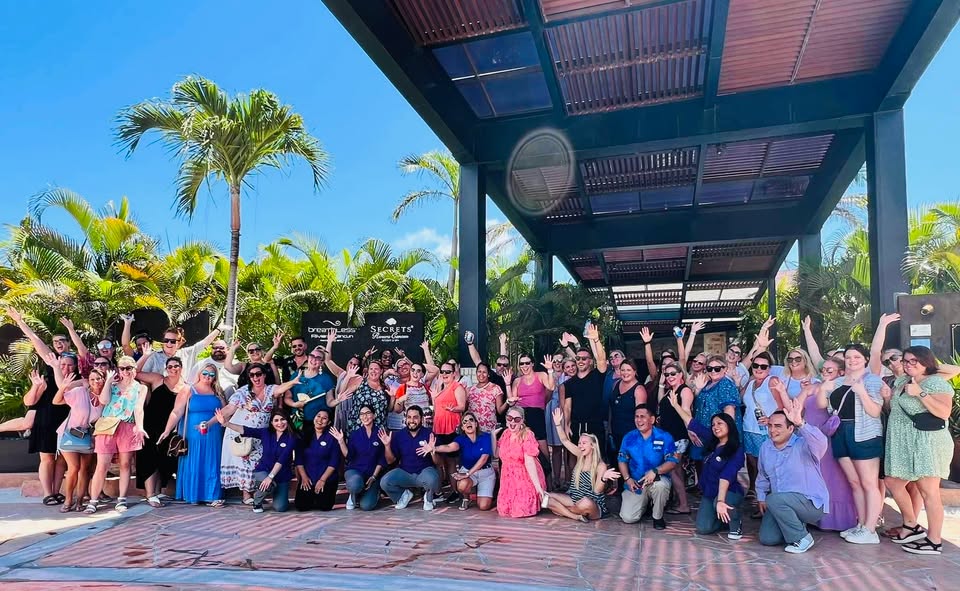How to become a travel agent in How To Become A Travel Agent In Charleston

Launched by industry veterans, Vincent Vacations is working to carve out a niche as a boutique, community-driven luxury agency designed by advisors, for advisors.
Become a travel agent with no experience! We provide the education for you to learn and become successful at your own pace.
At our Charleston based travel agency, we believe in empowering our travel agents with the knowledge and skills needed to excel. We provide comprehensive training programs that cover everything from industry basics to advanced booking systems and marketing strategies. Our ongoing support ensures you are never alone in your journey to success.
As part of our team, you'll have access to exclusive deals, industry resources, and cutting-edge technology. Our strong relationships with top travel suppliers mean you can offer your clients the best rates and packages available. Plus, our robust booking platform simplifies the process, allowing you to focus on what you do best – creating memorable travel experiences.
We understand the importance of work-life balance, which is why we offer flexible working arrangements. Whether you prefer to work from our Charleston office or remotely, we provide the tools and support to help you succeed. Our collaborative and inclusive work culture ensures you feel valued and motivated every day.
Being based in Charleston, gives us a unique advantage in understanding the local market. We pride ourselves on our deep connections within the community and our ability to provide personalized service to our clients. As a local travel agent, you'll have the opportunity to leverage your knowledge of the Charleston area to build a loyal client base and make a meaningful impact.

Reach out to us via our website here: become a travel agent. Our friendly team is here to answer any questions you may have and guide you through the application process.
Submit your application through our online portal. We are looking for individuals who are passionate, driven, and excited about the travel industry. Be sure to highlight your relevant experience and any unique skills that set you apart.
Once your application is reviewed, we will invite you for an interview. Successful candidates will join our dynamic team of travel professionals and embark on a rewarding career path with endless possibilities.
Don't miss the chance to join a leading travel agency in Charleston, where your passion for travel can transform into a successful career. Our supportive environment, extensive resources, and local expertise make us the perfect choice for aspiring travel agents. Apply today and start your journey with us!
Travel agent Charleston, Charleston travel agency, become a travel agent, local travel agents, travel careers Charleston, travel agent training, work from home travel agent, flexible travel jobs, Dallas travel opportunities, join travel agency.
Hi, my name is Stephanie
Cherise Isbell- Travel Advisor & Planner
Independent Travel Advisor
Jeanette Blevins
Cruise and Vacation Specialist
Vincent Vacations - Authorized Travel Agent In Charleston Vacation Planner
Questions? Call us at
1 (888) 883-0460
For Groups of 10
or more rooms, or 8 or more Cabins, please use of Group Form
Click Here for our Group Department
Click on a location below to learn more. We recognize that vacations are not just an investment, but often the highlights of our lives, and we take that responsibility seriously. We want to ensure you have the best experience.

All of these are signs that you are a great fit to become an independent travel agent, and turn your love of travel from passion into profit!
Learn MoreOur motto at Vincent Vacations is, we go so you know! We want to ensure you have the BEST experience, whether it's a river cruise, or a corporate group incentive trip, we want to ensure your vacation is a success.
We serve customers all across the USA
Debt free and in business since 2013. Vincent Vacations has agents in Dallas, Kansas City, Houston, Shreveport, Little Rock, Roswell, Oklahoma City and more locations.

Travel agents can help save time and stress by doing the research and handling all your bookings for you. An experience travel agent is best at finding great deals and packages, as well as providing you with helpful information and tips. They can also help you plan special activities and experiences that you may not have thought of on your own. All in all, using a travel agent can be a great way to make sure you get the most out of your trip.
In travel since 2002, and in business since 2013, our travel team serves clients all over the US! Planning a vacation away from home takes a great team. We have taken the time to build a team of dedicated, smart, hard-working personnel who are each committed to excellence and service. We work side-by-side, creating and ensuring INCREDIBLE vacation experiences for you and your group. Our store front in-office team, and our travel consultant independent contractors, work all around the US.


In business since 2013, we are your #1 source for travel!
Free Vacation Package Quote